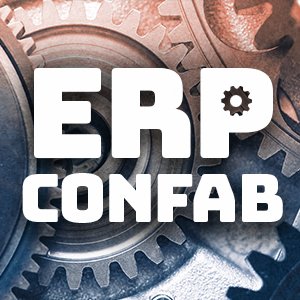
Nabugu - stock.adobe.com
Third-party support a new option for SAP S/4HANA Cloud users

Rimini Street CTO Eric Helmer explains how the company provides tech support and maintenance for SAP and Oracle ERP systems and where on-premises ERP fits in SAP's cloud strategy.
Since its founding in 2005, Rimini Street has been a thorn in the side of the two biggest heavyweights in ERP. As a third-party provider of software support and managed services for SAP and Oracle products, the company helps customers stay on their on-premises ERP systems by providing tech support that it claims is more responsive than what the makers offer -- for a fraction of what they charge.
Keeping their current systems humming along lets companies avoid expensive upgrades and put off migrating to cloud ERP, a move that SAP and Oracle have pushed aggressively, in part because cloud ERP subscriptions are known to be more profitable after several years than on-premises licenses.
Oracle responded to the competitive threat by suing Rimini Street for copyright infringement in a case that went all the way to the U.S. Supreme Court, which in 2019 decided in Oracle's favor. The two are still fighting in lower courts.
What's the role of a third-party support provider in the clash between ERP present and future? To learn more about what Rimini Street does and how it views SAP's recent strategy, I talked to Eric Helmer, the company's senior vice president and chief technology officer.
Saying no to forced upgrades
Last month, Rimini Street added support for SAP S/4HANA Cloud, which could change the response of some organizations to SAP's longstanding effort to move them off on-premises ERP Central Component (ECC) to S/4HANA, its newest ERP platform.
 Eric Helmer
Eric Helmer
Until 2021, SAP seemed indifferent to whether customers adopted the on-premises version of S/4HANA or S/4HANA Cloud, a more streamlined, multi-tenant SaaS version. That year, it introduced Rise with SAP, a service designed to smooth the path to S/4HANA Cloud, and lined up system integration partners, like Accenture, Deloitte, EY and Infosys, to help with the business process reengineering the move requires. Although it emphasizes S/4HANA Cloud as the ultimate destination, Rise offers halfway measures, like on-premises S/4HANA running in private clouds and extensions for bolting on SaaS applications.
Rise is shaping up to be another big moneymaker for SAP, according to recent financial statements. But, despite the fancy branding and marketing, it may do little to convince customers that, for good reason, are strongly wedded to their on-premises ECC. They run their businesses on it and have usually spent years customizing it to do what they need. For the small minority that made the move to on-premises S/4HANA, it was likely a multimillion-dollar project that brought substantial change and more than a few headaches.
In the podcast, Helmer was on message that companies don't have to shutter their on-premises ERP systems for the new cloud products pushed on them by vendors.
"If you look at what's available in these SaaS clouds, there's really not a whole bunch there that can justify a multiyear, multimillion-dollar, completely expensive and disruptive project," he said.
Helmer said some ERP customers make the mistake of ripping out their entire system in a quest to add "one delta" of new capabilities. There are other options.
"If there is desired functionality in new versions, customers can typically get that same or similar functionality either through some sort of customization or innovating around the edge or a bolt-on," he said. To help, Rimini Street offers a roadmap service that guides companies through the forks in the road and models their options.
For some, that might be a better approach than the guidance SAP and its partners provide with Rise with SAP and a newer program geared to new and midmarket customers called Grow with SAP.
"When you have a program like Rise, it forces customers to have to do a feature-by-feature comparison of how they're using the system today and map that over to what it's going to look like in Rise," he said. "They're going to have some things that will be the same, some things will be different [and] some things won't even be available at all in Rise."
Helmer's case against forced upgrades might sound self-serving, but it's a winning argument that carried Rimini Street to $410 million in annualized revenue in its latest earnings report.
The company's position was bolstered by SAP's controversial announcement in July that future innovations, including trendy AI and sustainability features, will only be available on SAP cloud products and not on-premises ECC and S/4HANA.
User groups in Germany, the U.K. and Ireland who implemented S/4HANA have complained loudly that SAP led them to believe their expensive on-premises systems would continue to get new features.
Other topics discussed include the following:
- How Rimini Street acquires the expertise to support SAP and Oracle ERP without having formal relationships with the vendors.
- Its response to critics who question how its security methods can work without vendor software patches.
- Ways the company helps customers add innovations to their ERP system if they don't accept vendor upgrades.
To hear the podcast, click on the link above.